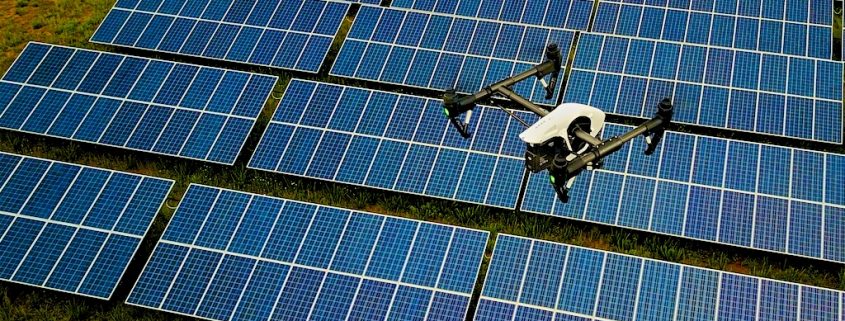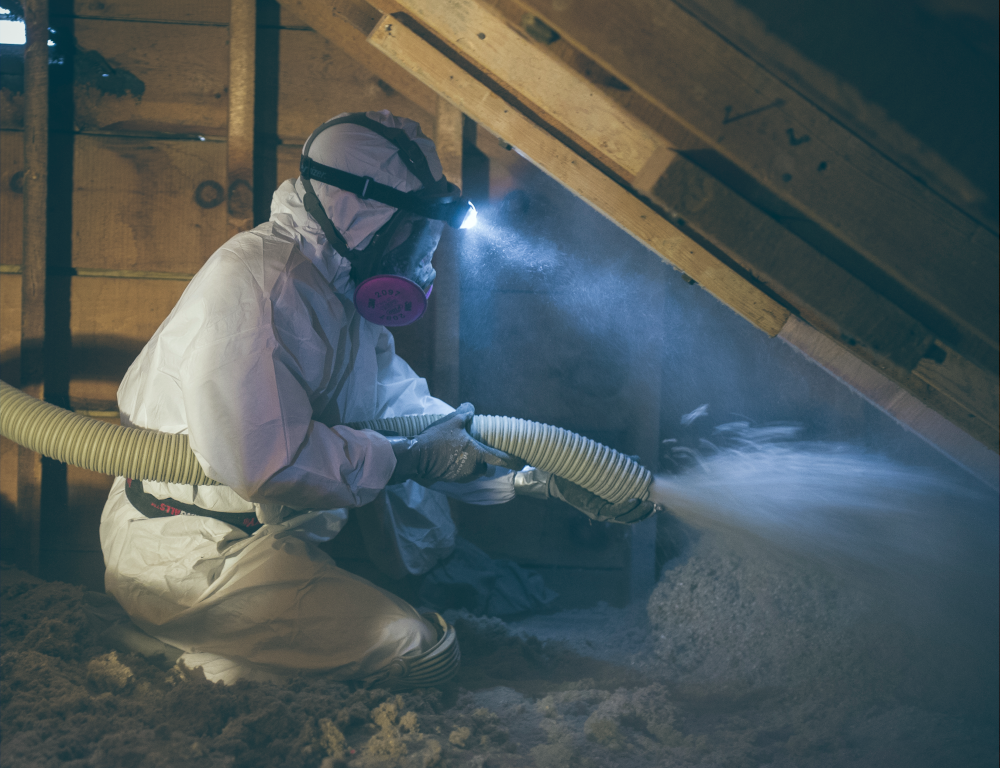How Energy Testing Can Result In Much More Lasting Living Solutions
Energy screening is a crucial tool for promoting lasting living. It discovers ineffectiveness in energy usage within homes. Methods such as power audits and thermal imaging give beneficial insights. Property owners can determine areas requiring enhancement, from insulation to home appliances. Addressing these inefficiencies can bring about substantial power financial savings. Many stay unaware of the full possibility of these methods. What steps can people require to improve their homes and add to a much more lasting future?
Understanding Energy Screening and Its Significance

Common Approaches of Power Screening
There are a number of common techniques of energy testing that homeowners can make use of to assess their energy efficiency (air tight solutions). One extensively utilized technique is the blower door examination, which gauges the air leak in a home. By pressurizing the structure, it determines drafty locations that might require sealing. Another method is thermal imaging, where infrared electronic cameras detect temperature variants in ceilings, home windows, and walls, highlighting insulation issues.Energy audits are also popular, including an extensive analysis of a home's power usage, typically performed by an expert. These audits might include reviewing heating and cooling down systems, home appliances, and total energy usage patterns. Additionally, clever energy meters can provide real-time information on energy usage, helping property owners comprehend their usage habits. Together, these methods offer valuable understandings, enabling home owners to make informed decisions concerning improving their energy efficiency and promoting lasting living practices
Identifying Energy Inefficiencies in Your Home
Determining energy ineffectiveness in a home is vital for home owners intending to decrease energy consumption and lower energy costs. Usual areas to evaluate consist of insulation, windows, and appliances. Poor insulation can bring about significant warm loss in wintertime and undesirable warmth gain in summer, making home heating and cooling systems function harder. Breezy windows contribute in a similar way, enabling conditioned air to escape and boosting energy demand.Additionally, outdated home appliances often eat much more energy than their contemporary counterparts, further aggravating inefficiency. House owners should also take into consideration the lighting system, as incandescent light bulbs use more power contrasted to LED options.Regular upkeep of a/c systems is crucial, as neglect can bring about decreased effectiveness. By systematically assessing these aspects of a home, property owners can identify locations needing improvement. Resolving these inefficiencies not only enhances comfort however additionally adds to a much more lasting way of living by reducing power waste.
The Role of Power Audits in Sustainability
Energy audits play a vital duty in advertising sustainability by giving homeowners with a considerable analysis of their energy use. These analyses identify areas where energy is thrown away, permitting individuals to comprehend their consumption patterns and make notified choices for improvement. By exposing inefficiencies in heating, air conditioning, insulation, and appliances, power audits act as an important device for decreasing general power demand.Furthermore, they facilitate the execution of energy-saving procedures, such as updating insulation or mounting energy-efficient illumination, which can significantly reduce utility costs and decrease carbon footprints. The understandings acquired from a power audit equip homeowners to prioritize sustainability in their living settings. As more households take part in this procedure, the collective effect adds to wider environmental objectives, fostering a society of energy awareness and duty. Ultimately, power audits are fundamental to progressing lasting living options, benefitting both individual house owners and the setting at large.
Cutting-edge Technologies for Power Effectiveness
As house owners significantly look for to boost their energy efficiency, innovative innovations are arising to support these endeavors. Smart home systems, equipped with sensors and automation, permit house owners to regulate and monitor energy usage in real-time. These systems can change air conditioning, lights, and home heating based on occupancy, thereby reducing waste.In enhancement, improvements in energy-efficient appliances have made substantial strides. Instruments such as ENERGY STAR-rated fridges and cleaning equipments eat much less energy while supplying perfect performance. In addition, the assimilation of renewable resource resources, like solar panels and wind generators, enables property owners to create their own power, decreasing reliance on nonrenewable resources.Building materials have additionally developed, with alternatives like shielded concrete kinds and energy-efficient home windows adding to decreased power loss. Together, these cutting-edge modern technologies not just improve energy performance however likewise foster an even more sustainable living setting, equipping homeowners to make impactful selections in their power usage practices.
Long-Term Benefits of Sustainable Living
While lots of may watch lasting living as a pattern, its lasting benefits extend far past plain lifestyle options. Embracing lasting methods causes considerable decreases in carbon impacts, adding to a much healthier world. By minimizing resource usage and prioritizing renewable energy, individuals and areas can experience reduced energy costs. This financial alleviation can enhance economic security with time, enabling reinvestment in other essential areas.Furthermore, sustainable living cultivates more powerful area ties as people team up on regional campaigns, advertising social cohesion. Health and wellness advantages also emerge, as reduced contamination and raised environment-friendly spaces improve air quality and general well-being. Furthermore, future generations will inherit a much more lasting setting, guaranteeing the schedule of natural deposits and biodiversity. Eventually, the long-term advantages of sustainable living encompass ecological, financial, and social measurements, providing a compelling case for individuals to embrace and preserve these methods for the greater good.
Actions to Execute Energy-Saving Solutions
Carrying out energy-saving remedies starts with a comprehensive evaluation of power consumption patterns to determine areas for enhancement. When these patterns are comprehended, people can pinpoint energy-efficient upgrades that straighten with their requirements. Continual surveillance and adjustments to energy usage assurance that these options stay reliable with time.
Assess Power Usage Patterns

Examining power intake patterns is an essential action towards recognizing efficient energy-saving solutions. By methodically tracking use across various times and organizations, people and home appliances can identify locations of extreme usage. This evaluation can reveal peak usage durations, allowing a far better understanding of when power needs are greatest. Additionally, taking a look at patterns permits comparisons between similar devices, highlighting those that operate much less effectively. Data collection approaches, such as smart meters and energy audits, supply valuable understandings right into general energy usage. In addition, determining trends over browse around here time can help in identifying seasonal variants and shifts in consumption behaviors. This fundamental knowledge is crucial for creating targeted approaches that promote lasting living and decrease total energy expense.
Identify Energy-saving Upgrades
To successfully implement energy-saving solutions, recognizing energy-efficient upgrades is essential for both services and house owners. This process starts with an extensive evaluation of existing systems, including a/c units, insulation, and devices. Upgrades may include mounting ENERGY STAR-rated home appliances, boosting insulation, and using energy-efficient windows. In addition, applying smart thermostats can enhance heating and cooling down schedules, lowering power intake. Moving to LED lights is my review here another reliable measure, as it consumes substantially much less energy than traditional light bulbs. In addition, discovering renewable resource options, such as photovoltaic panels, can provide long-term cost savings. Ultimately, focusing on these upgrades not just adds to reduced power expenses yet likewise fosters a commitment to sustainability, benefiting both the atmosphere and future generations.
Monitor and Readjust Usage
Monitoring and adjusting energy use is crucial for maximizing the benefits of energy-saving solutions. Routinely reviewing power consumption patterns allows individuals and businesses to identify areas for improvement. By using clever meters and power management systems, customers can track real-time use and spot any kind of abnormalities that might indicate inefficiencies.Adjusting actions, such as shutting off lights and disconnecting extra devices, even more improves energy financial savings. Additionally, scheduling home appliances to operate throughout off-peak hours can substantially decrease costs.Conducting periodic energy audits guarantees that applied options stay effective over time. By actively participating in tracking and adjusting techniques, individuals can maximize their power effectiveness, add to sustainability initiatives, and eventually reduce their ecological impact.
Regularly Asked Inquiries
Just how much Does an Energy Audit Usually Price?

Can Energy Testing Help Reduce Energy Bills?
Power screening can significantly lower utility bills by identifying inefficiencies in a home's power usage. By resolving these concerns, house owners commonly experience lower intake and costs, causing more affordable power monitoring and improved monetary savings.
What Qualifications Should a Power Auditor Have?
An energy auditor should have pertinent qualifications, such as RESNET or BPI, along with experience in structure sciences. energy testing taylors sc. Strong logical skills and expertise of energy effectiveness techniques are crucial for performing exact assessments and offering reliable suggestions
Are There Federal Government Motivations for Energy Performance Upgrades?
Government motivations for power performance upgrades commonly exist, including tax refunds, grants, and credits. These programs intend to encourage property owners and services to invest in energy-saving modern technologies, ultimately advertising environmental sustainability and minimizing overall power intake.
Just how Frequently Should I Conduct Power Screening in My Home?
Energy screening ought to preferably be performed yearly to recognize inefficiencies. Nevertheless, home owners pop over to this web-site might consider much more regular analyses after considerable remodellings, adjustments in power costs, or if uncommon drafts or temperature level variations are discovered within the home. Power screening makes it possible for the assessment of how well a home utilizes energy, determining areas where waste occurs. Recognizing power ineffectiveness in a home is necessary for house owners intending to lower power usage and lower utility expenses. Energy audits play an important function in promoting sustainability by giving home owners with a considerable evaluation of their energy usage. By disclosing inadequacies in home heating, cooling, insulation, and appliances, power audits offer as a critical tool for minimizing general energy demand.Furthermore, they assist in the implementation of energy-saving procedures, such as upgrading insulation or mounting energy-efficient illumination, which can significantly lower utility costs and decrease carbon impacts. Power screening can markedly minimize utility bills by determining ineffectiveness in a home's energy usage.